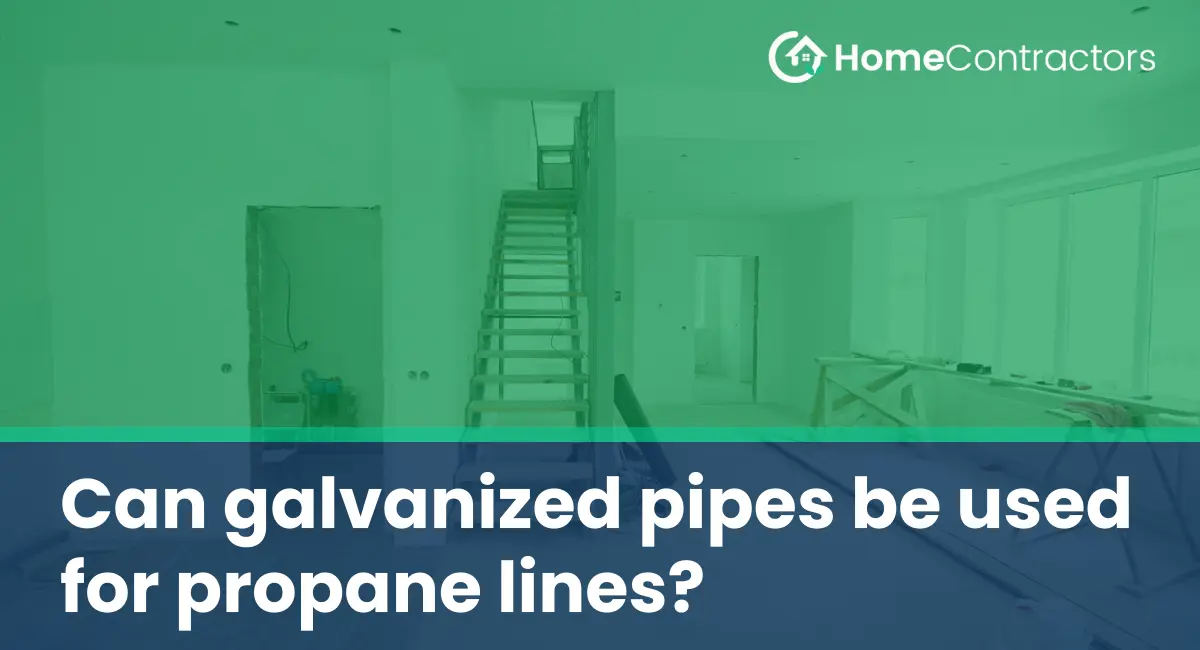In this article, we will explore the suitability of galvanized pipes for propane lines and discuss the advantages and concerns associated with using them.
Understanding Galvanized Pipes:
Galvanized pipes are steel pipes that have been coated with a layer of zinc to protect them from corrosion. The zinc coating not only prevents rusting but also increases the longevity of the pipes. Galvanized pipes are commonly used in water supply systems, plumbing, and outdoor structures. They are known for their strength and durability, making them a popular choice in many applications.
Advantages of Galvanized Pipes for Propane Lines:
- Corrosion Resistance: The primary advantage of galvanized pipes is their resistance to corrosion. Propane is a highly corrosive gas, and using galvanized pipes can provide an extra layer of protection against rust and deterioration. This can help prolong the lifespan of the propane line and minimize the risks of leaks or failures.
- Strength and Durability: Galvanized pipes are known for their strength and durability. Propane lines typically require a sturdy piping material that can withstand high pressure and external factors. Galvanized pipes possess these qualities and can handle the demands of a propane system with relative ease.
- Availability and Affordability: Galvanized pipes are readily available in the market, making them easily accessible for propane line installations. Additionally, they are often more affordable compared to other piping materials, which can be a significant advantage for individuals or businesses on a budget.
Concerns in Using Galvanized Pipes for Propane Lines:
- Corrosion over Time: While galvanized pipes offer corrosion resistance, the zinc coating can deteriorate over time, especially when exposed to propane gas. As the zinc degrades, the pipe’s protection diminishes, increasing the likelihood of corrosion issues. Regular inspections and maintenance are crucial to identifying any signs of deterioration and preventing potential problems.
- Incompatibility with High Temperatures: Propane lines may encounter high temperatures due to the nature of the gas. Galvanized pipes can handle moderate temperatures, but they may not be suitable for extremely high-temperature applications. It is important to assess the specific temperature requirements of the propane system and consult with professionals to ensure the galvanized pipes can handle the heat.
- Thread Integrity: Galvanized pipes typically have threaded ends, which rely on the integrity of the threads to maintain a secure connection. However, the process of galvanization can cause the threads to become slightly thicker, potentially affecting the tightness of the connections. Proper installation techniques and regular checks are crucial to ensure a leak-free propane system.
Galvanized pipes can be used for propane lines to provide corrosion resistance, strength, and affordability. However, some concerns, such as long-term corrosion, high-temperature compatibility, and thread integrity, should be carefully considered when using galvanized pipes for propane systems. It is always recommended to consult with a qualified professional or propane supplier to assess the specific requirements and regulations in your area to ensure a safe and reliable propane line installation.
